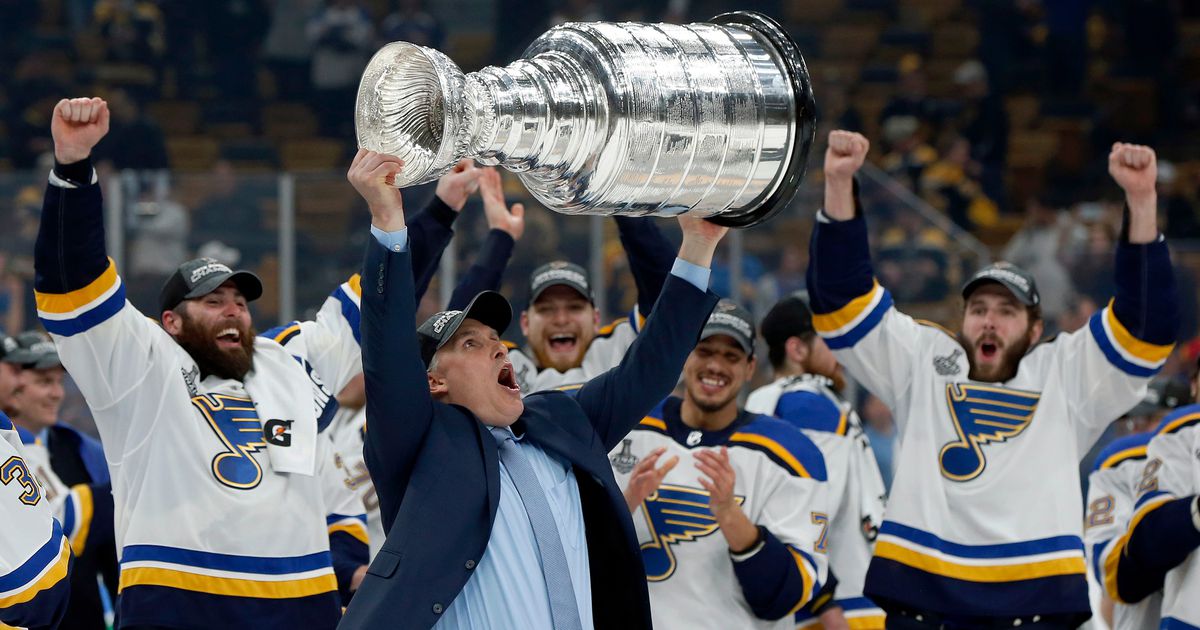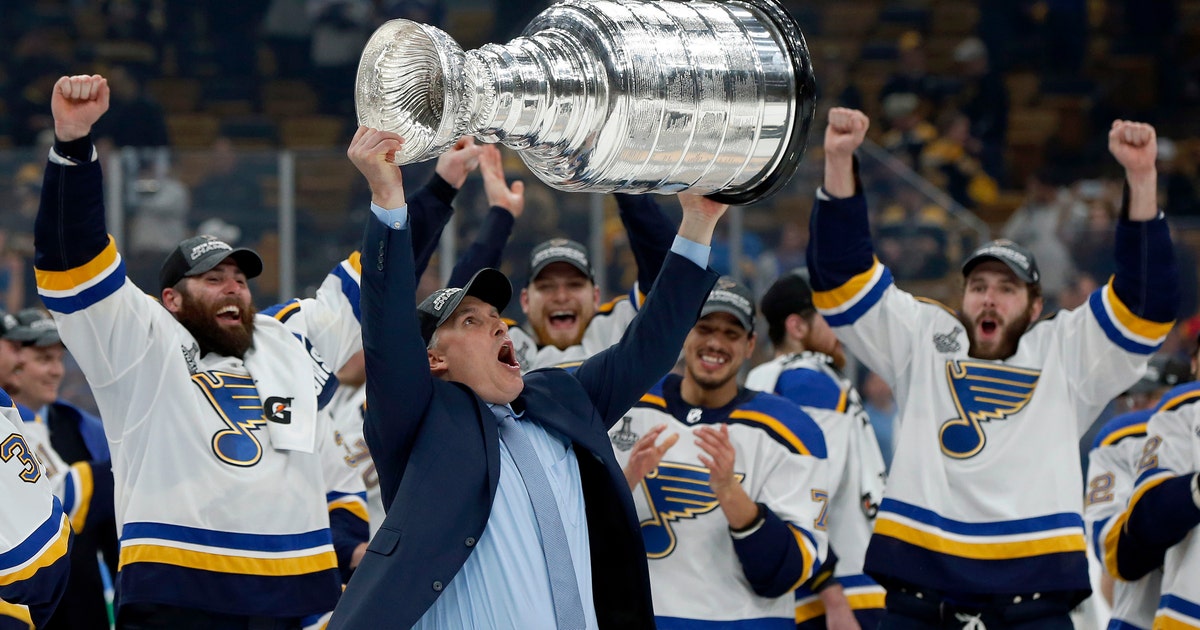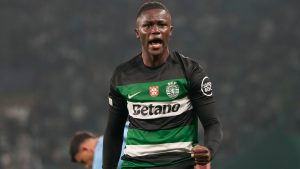Call it a comeback: Blues come through in big situations en route to The Cup


BOSTON — When Alex Pietrangelo lifted a backhander over Tuukka Rask to give the St. Louis Blues a two-goal lead late in the first period, Boston fans went silent and the eerie quiet lasted throughout intermission.
With good reason. The Blues hadn’t lost a single playoff game when up by at least two goals.
The Bruins found out what San Jose Sharks, Dallas Stars and Winnipeg Jets learned the hard way: Don’t let the St. Louis Blues take a lead.
Craig Berube’s team showed all playoffs it could lock down a hockey game better than anyone else in the NHL. Their style of game translates perfectly to playing with a lead, a recipe that helped them finish off Boston 4-1 Wednesday night in Game 7 to lift the Stanley Cup.
“We did a real good job in the middle of the ice tonight, especially in our own end — good sticks, clogging it up, blocking shots,” Berube said. “I thought our guys, they did a real good job in the middle of the ice, clogging it up, not giving them anything free there.”
After the regular season saw an NHL-record 138 multi-goal comebacks, the Blues went 4-0 in the Cup final when taking a lead of any kind on the Bruins and were undefeated whenever they had a two-goal or more advantage this postseason.
So much of that can be traced back to Berube’s changes when he took over as interim coach for Mike Yeo in November. He instituted a north-south brand of hockey that better suited the roster general manager Doug Armstrong put together. Asked after Game 7 on the ice what Berube’s hiring meant to St. Louis, Armstrong didn’t hesitate.
“Everything,” he said simply. “He came in. one of the things he did right away was he took down the standings. … He said, let’s just go to work every day.”
“He doesn’t get too high, too low … I learned a lot working with him and I look forward to working with him for a long time to come,” added Armstrong, who then laughed when Berube’s interim title was mentioned. “We’re going to work that out.”
St. Louis showed it could put a stranglehold on opponents when playing with a lead. They finished the playoffs 13-4 when scoring first, 8-2 when leading after one period and 10-1 when leading after two.
Even Bruins coach Bruce Cassidy conceded that the Blues “play a different game” when they’re ahead. Much of that is the structure that helped St. Louis go from last in the NHL on the morning of Jan. 3 to the playoffs.
Craig Berube: “We had to go through an awful lot to get where we are now.” #stlblues #StanleyCup pic.twitter.com/pDH8RYF1TL
— FOX Sports Midwest (@FSMidwest) June 13, 2019
“We’ve been doing that since January, and it’s been working almost every single game,” hard-checking forward Oskar Sundqvist said. “We were playing really tight and we were staying connected throughout the whole ice. We were helping each other in a great way. I don’t know. We just stuck with it and kept doing what we needed to do.”
Because of how well the Blues defend and even move the puck differently when they’re ahead in a game, it gets increasingly difficult over the course of a game for an opponent to come back on the Blues. They also went 4-1 in chances to eliminate a team — and after losing Game 6 on home ice were clinical in holding on to a multi-goal lead in Game 7.
“Goals are scored, no lead is safe,” said rookie goaltender Jordan Binnington, a big part of making sure Blues’ leads were safe.
Binnington came out of nowhere to lead St. Louis to the Stanley Cup. He didn’t have the best numbers in the playoffs, or at least not close to his otherworldly regular season, but he was the biggest reason St. Louis won Game 5 to move to the verge of winning it all and made stopped 32 of the 33 shots he faced in Game 7.
The 25-year-old made 12 first-period saves Wednesday to stunt a Bruins onslaught, then everything about the course of the game changed with Pietrangelo’s stunning goal with 7.9 seconds on the clock. The Blues could then be at their best.
“We had a lot more confidence,” Berube said. “I thought we got better and even in the third from a checking standpoint more than anything, just not giving them anything. Keeping it on the outside and Binner had to make a couple big saves in the third, but I thought we did a real good job with our checking.”
Checking and defending got the Blues here. They showed resiliency in the face of adversity, like a missed hand pass in overtime of Game 3 against San Jose last round, and more than anything they prided themselves on playing like Berube did during his career — tough and giving opponents as little room as possible.
“Our defense was really good, and defense wins championships,” Sundqvist said. “That’s exactly what we did.”





